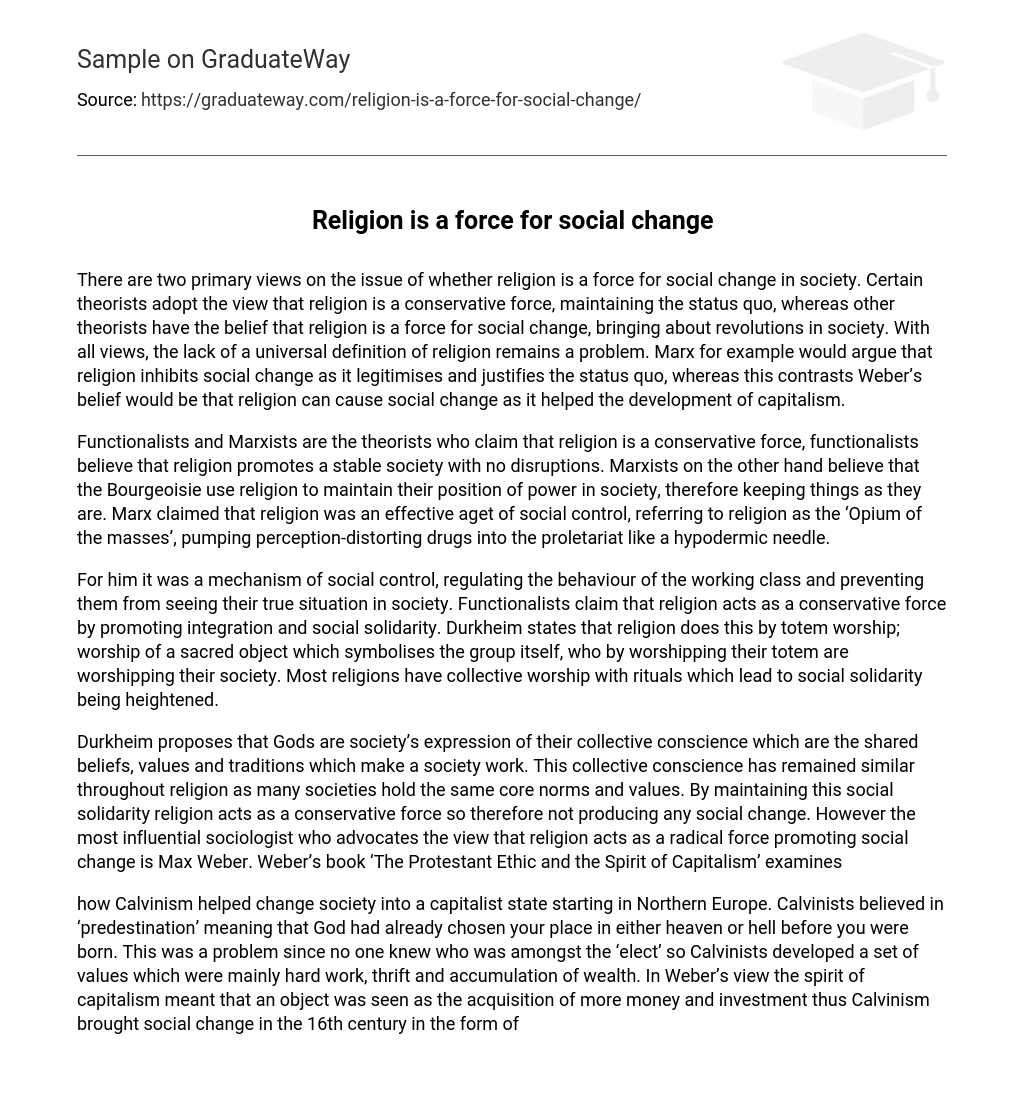There are differing views on whether religion promotes social change in society. Some theorists argue that religion acts as a conservative force, preserving the existing order, while others believe it can be a catalyst for social change and even spark revolutions. However, the ongoing challenge lies in the absence of a universally accepted definition of religion. According to Marx, religion impedes social change by legitimizing and justifying the current state of affairs. On the contrary, Weber disagrees with Marx’s perspective and suggests that religion has played a role in the rise of capitalism and thus has the potential to bring about social change.
Both functionalists and Marxists share the view that religion functions as a conservative force. Functionalists hold the belief that religion plays a role in upholding social stability by averting disruptions. Conversely, Marxists contend that religion is employed by the ruling class, referred to as the Bourgeoisie, to safeguard their prevailing status within society and impede societal transformation. According to Marx’s perspective, religion serves as an influential mechanism of social control, often likened to an “Opium of the masses,” since it perpetuates false notions among the working class similar to drugs being administered via a hypodermic needle.
According to him, religion served as a means of social control, regulating the behavior of the working class and impeding their understanding of their true societal position. Functionalists argue that religion plays a role in maintaining social harmony by fostering unity and solidarity. Durkheim asserts that this is achieved through the reverence of totems, whereby a sacred object is honored as a symbol of the community itself. By revering their totem, individuals are essentially honoring their society. Many religions include communal worship and rituals which enhance social cohesion.
Durkheim argues that Gods embody a society’s collective conscience, reflecting their shared beliefs, values, and traditions that contribute to the functioning of a society. This collective conscience remains consistent across religions as multiple societies abide by the same fundamental norms and values. Religion serves as a conservative force by maintaining social solidarity and preventing substantial social change. However, Max Weber counters Durkheim’s perspective and contends that religion can function as a radical force that fosters social change. In his book ‘The Protestant Ethic and the Spirit of Capitalism,’ Weber delves into this notion.
The introduction of Calvinism in Northern Europe played a pivotal role in transforming society into a capitalist state. Calvinists adhered to the concept of ‘predestination,’ which asserted that individuals’ destinies of either heaven or hell were predetermined by God even before their birth. However, this posed a challenge as it was impossible to determine who belonged to the ‘elect’ group. Consequently, Calvinists formulated a set of values centered around hard work, thrift, and accumulation of wealth. Weber argues that the spirit of capitalism emphasized the pursuit of wealth and financial investments. Thus, Calvinism brought about significant social changes in the 16th century, giving rise to the modern form of capitalism we now witness.
Karl Marx and Weber have different views. Marx argues that religion is a conservative ideology that reflects and justifies class inequalities in society’s economic structure. Marxists acknowledge that religion can have relative autonomy, meaning it is partially independent from the economic base. As a result, religion has a dual nature and can serve as both a catalyst for social change and a stabilizing force.





